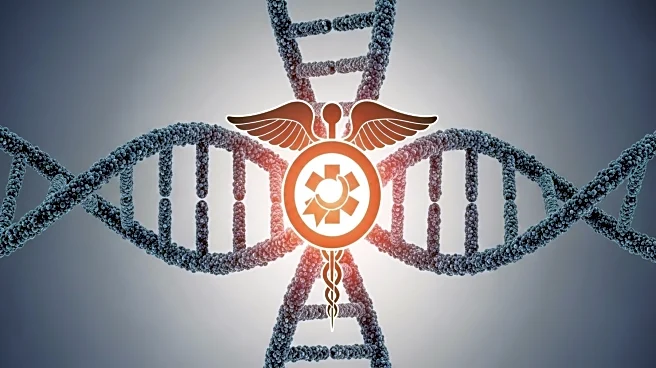What is the story about?
What's Happening?
Geneseeq Technology Inc. has announced that its GeneseeqPrime® NGS Tumor Profiling Assay has received FDA 510(k) clearance. This in vitro diagnostic test kit uses next-generation sequencing to detect tumor gene alterations across a comprehensive multi-gene panel in patients with solid malignant neoplasms. The assay interrogates 425 cancer-related genes, providing insights into genomic alterations such as single nucleotide variants, insertions/deletions, and gene amplifications. The FDA clearance strengthens Geneseeq's ability to support clinical trials and biomarker-driven drug development, promoting data harmonization and operational efficiency globally.
Why It's Important?
The FDA clearance of GeneseeqPrime® marks a significant milestone in precision oncology, enabling decentralized, standardized oncology testing worldwide. By providing a validated platform for genomic profiling, Geneseeq expands patient access to precision medicine, supporting innovation in cancer care. The clearance follows prior regulatory achievements in Europe and China, positioning Geneseeq as a global leader in the field. This development may accelerate biomarker-driven therapeutic development, offering new opportunities for personalized cancer treatment.
What's Next?
With FDA clearance, Geneseeq is poised to enhance its support for multi-regional clinical trials and companion diagnostic strategies. The company may continue to expand its partnerships with hospitals, academic institutions, and pharmaceutical companies to advance precision medicine. The standardized platform could lead to increased adoption of genomic profiling in oncology laboratories, potentially influencing future cancer treatment protocols.
Beyond the Headlines
The FDA clearance of GeneseeqPrime® highlights the ethical and societal implications of expanding access to precision medicine. By enabling high-quality genomic profiling locally, Geneseeq addresses disparities in cancer care, offering more equitable treatment options. The company's commitment to innovation may drive long-term shifts in how cancer is detected, diagnosed, and treated, setting new standards for precision oncology.
















